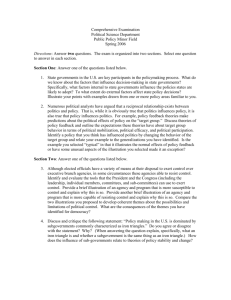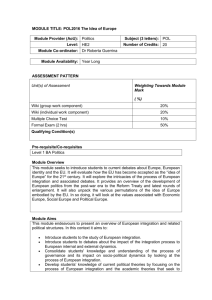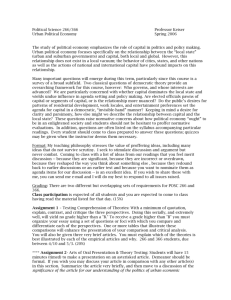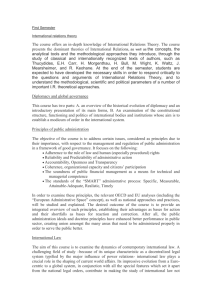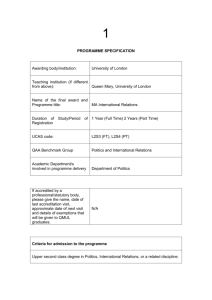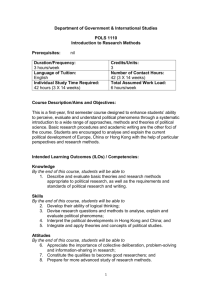Introduction Notes CBG
advertisement
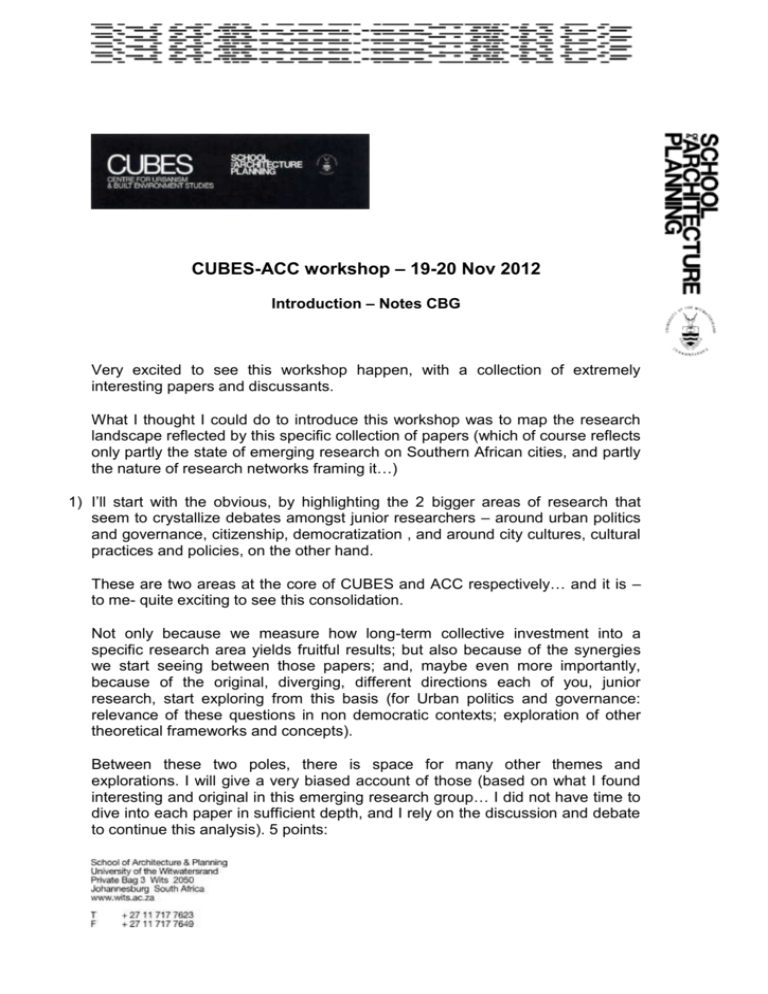
CUBES-ACC workshop – 19-20 Nov 2012 Introduction – Notes CBG Very excited to see this workshop happen, with a collection of extremely interesting papers and discussants. What I thought I could do to introduce this workshop was to map the research landscape reflected by this specific collection of papers (which of course reflects only partly the state of emerging research on Southern African cities, and partly the nature of research networks framing it…) 1) I’ll start with the obvious, by highlighting the 2 bigger areas of research that seem to crystallize debates amongst junior researchers – around urban politics and governance, citizenship, democratization , and around city cultures, cultural practices and policies, on the other hand. These are two areas at the core of CUBES and ACC respectively… and it is – to me- quite exciting to see this consolidation. Not only because we measure how long-term collective investment into a specific research area yields fruitful results; but also because of the synergies we start seeing between those papers; and, maybe even more importantly, because of the original, diverging, different directions each of you, junior research, start exploring from this basis (for Urban politics and governance: relevance of these questions in non democratic contexts; exploration of other theoretical frameworks and concepts). Between these two poles, there is space for many other themes and explorations. I will give a very biased account of those (based on what I found interesting and original in this emerging research group… I did not have time to dive into each paper in sufficient depth, and I rely on the discussion and debate to continue this analysis). 5 points: 2) Interrogating concepts and theories from field work, urban practices and discourses I liked – that is how we tried to frame it through the title of this workshop (not only theory but empirical approaches to cities)- the fact that most papers looked for, and in many case found, a nice balance between empirical evidence and deep theoretical debates. Grounding theories as one way for theoretical creativity… beyond the easy discard of northern theories and the call for never coming ‘theories of the south’: it is about questioning theories (from North or South) from the south in robust debates. Ex – using Bourdieu to understand volatile local politics; questioning hegemony at the urban scale; using new institutionalism to try and make sense of local leadership politics; reflecting on Chatterjee and Bayat in non-democratic contexts; complexifying the too extreme / caricatured debates on ‘the commons’, on modernity and on development; grounding theories of policy transfers… this are very exciting, courageous and necessary processes – that probably need to consolidate at a later stage in coming back to theory… 3) Second interesting point – emerging research area for me personally as well – developing understanding of perspectives from city officials, from leaders, from institutions that are trying to effect change. Beyond the criticism from the margins (which remains necessary to highlight state actions shortcomings, be it miscalculations or malicious intents), I think this is about trying to understand change and agency from the state, after some time has elapsed after 1994 and its wild dreams of social and spatial justice for the cities. Housing officials having a quite subtle understanding of the unexpected effects of RDP housing production; insiders views on collective protests and how it affects policy making; leadership, at mayoral or at community level; institutional cultures, inertias and resistance to change (housing sector/ environmental sector). Beyond the romanticisation of collective action, social movement and the discard of politics and the state, it is an important, complementary area opening up here- also related to SA specific relation between academia and social change, but at a quite theoretical level. 4) Still, emphasis on understanding the city and the state from the margins – but maybe in more discrete ways as grand narratives about social movement and change. Individual or discrete artistic practices and what they tell us – on different views on the city, different practices; on hopes for change and dreams; also on the everyday challenge of local politics, fraught with fears and internal fights, as reflective of broader oppressive structures that do not destroy agency (at least individual, households, or small groups – household in Luanda, residents associations in peripheral areas, reclaimers in Soweto, etc.). CUBES is a research center focusing on the City, based at the School of Architecture and Planning at Wits University. Visit http://www.wits.ac.za/cubes/4881/cubes.html Contact Claire Benit-Gbaffou, Acting Director, claire.benit@wits.ac.za
